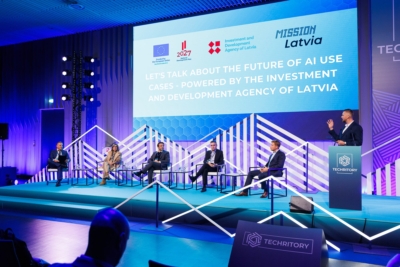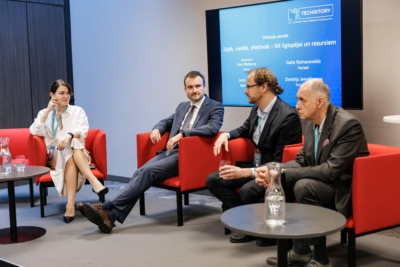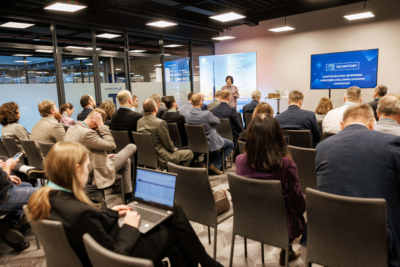The Roundtable on “Detecting and Defending Against Spoofing, Jamming, and Spectrum Disruption” as a side event of Techritory forum on 23 October in Riga has been joined by a wide range of stakeholders from Regulators, Ministries, Aviation, Telecom, Satellite Industry, Equipment Manufacturers and Academia.
Participants agreed on the increased number of incidents of jamming and spoofing (J&S) of GNSS systems. The Baltic region is an area with an extremely high number of those incidents. However it is considered a problematic issue all over Europe. Most participants highlighted the security issues by jamming and spoofing attacks. Further it was mentioned that those irregularities already cause a substantial economic impact, especially in the aviation area. Also impact on maritime applications has been mentioned.
While J&S originating from own territory can be enforced, international cases are more difficult and only diplomatic approaches can be considered, e.g. involving the International Telecommunication Union.
Several solutions to make GNSS more robust and resilient have been discussed. Among those are improvements of the GNSS receiver including directional antennas. It was claimed that improved resilience of the GNSS receiver could be enforced by an appropriate regulation. However overregulation should be avoided to leave room for cost effective positioning solutions in non-critical applications. Add-ons for the existing systems e.g. authentication functionality in the civil area may be thought of. Also it was mentioned that new waveforms could be developed with more build-in resilience. Alternative systems could also be a way to improve positioning like magnetic sensors or terrestrial time distribution systems. Also complete new satellite solutions like low earth orbit positioning and timing systems can increase reliability.
As applications and deployment of digital solutions in smart cities are increasing, the resilience of position and time information need to be included from the start.
Techritory is organized by the Electronic Communications Office of Latvia, powered by the Investment and Development Agency of Latvia (LIAA) and the European Union’s Recovery and Resilience Facility. It is created in cooperation with the International Telecommunication Union, strategic partners – LMT, the Nordic Council of Ministers, the City of Hamburg, and the golden partner, Latvia State Radio and Television Centre.



